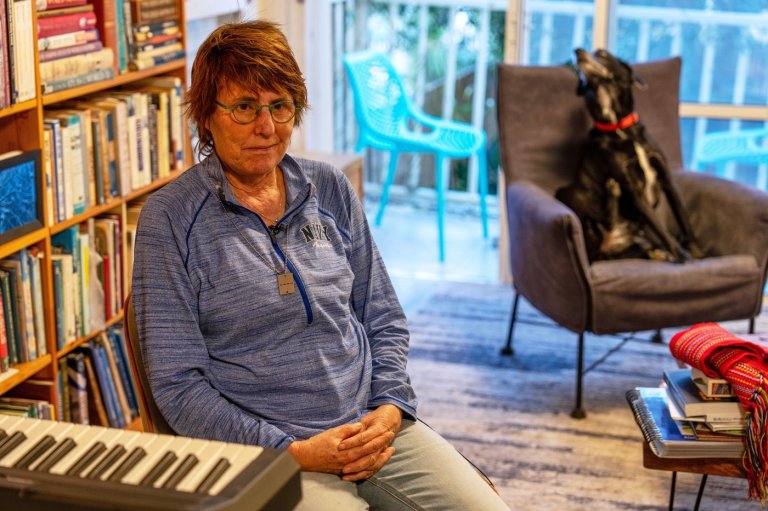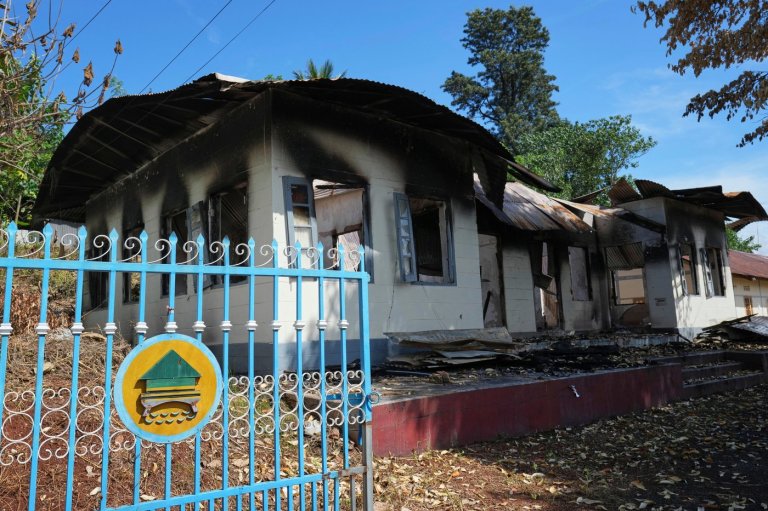
Appeals court rules Alabama violated constitutional rights of man sentenced to death
MONTGOMERY, Ala. (AP) — A federal appeals court ruled Alabama prosecutors violated the constitutional rights of a man sentenced to death in 1990, saying Blacks were rejected from the jury during his trial.
The Monday ruling from a three judge panel on the 11th Circuit Court of Appeals means Michael Sockwell, 62, is eligible for a retrial. He was convicted of killing former Montgomery County Sheriff Isaiah Harris in 1988 when he was 26-years old.
The panel issued a 2-1 opinion stating Alabama prosecutors violated Sockwell’s 14th Amendment rights by “repeatedly and purposefully” rejecting potential Black jurors who were believed to be more sympathetic to him on the basis of their shared race.
Prosecutors said Harris’ wife hired Sockwell to kill Harris because she wanted to cover up an affair she was having and collect Harris’ insurance money. There were no witnesses to the shooting. Sockwell, whose attorneys say has a low IQ that disqualifies him from the death penalty, initially told authorities in a videotaped confession that he killed Harris. At his trial, Sockwell testified that officers threatened to beat and kill him before he confessed and deprived him of food and water.
Sockwell then testified that another man, who was having an affair with Harris’ wife, committed the killing. Sockwell also denied he ever received money to kill Harris.
The jury voted 7-5 to sentence Sockwell to life in prison, but the judge overruled the decision and sentenced Sockwell to death. Alabama no longer allows a judge to override a jury’s sentence in capital cases.
Attorneys for Sockwell appealed the decision, arguing the prosecutors unconstitutionally used race as the basis for jury selection, rejecting 80% of the Black jurors who were eligible for Sockwell’s trial — compared to only 20% white jurors who were disqualified. The appeal cited notes from the prosecutor that rejected one juror who she described as “a (B)lack male, approximately twenty-three years of age, which would put him very close to the same race, sex, and age of” Sockwell.
Judge Robert J. Luck, who was appointed by President Donald Trump, dissented. Luck emphasized that the prosecutor noted the race of white potential jurors too, a fact Luck said indicated race was not a disqualifying factor for jurors in Sockwell’s case.
The opinion, written by former President Bill Clinton-appointed Judge Charles Wilson, also cited four other cases in the years leading up to Sockwell’s case where the state prosecutor appeared to have illegally rejected Black jurors based solely on their race, demonstrating a “pattern” of choosing juries with “discriminatory intent.”
The Alabama Attorney General’s Office did not immediately respond to an emailed request for comment Tuesday morning.
Luck disputed that the prosecutor had a pattern of discrimination and said 17% of the jury in Sockwell’s trial was Black out of a jury pool that was 24% Black to begin with. ___
Riddle is a corps member for The Associated Press/Report for America Statehouse News Initiative. Report for America is a nonprofit national service program that places journalists in local newsrooms to report on undercovered issues.
Join the Conversation!
Want to share your thoughts, add context, or connect with others in your community?
You must be logged in to post a comment.

















